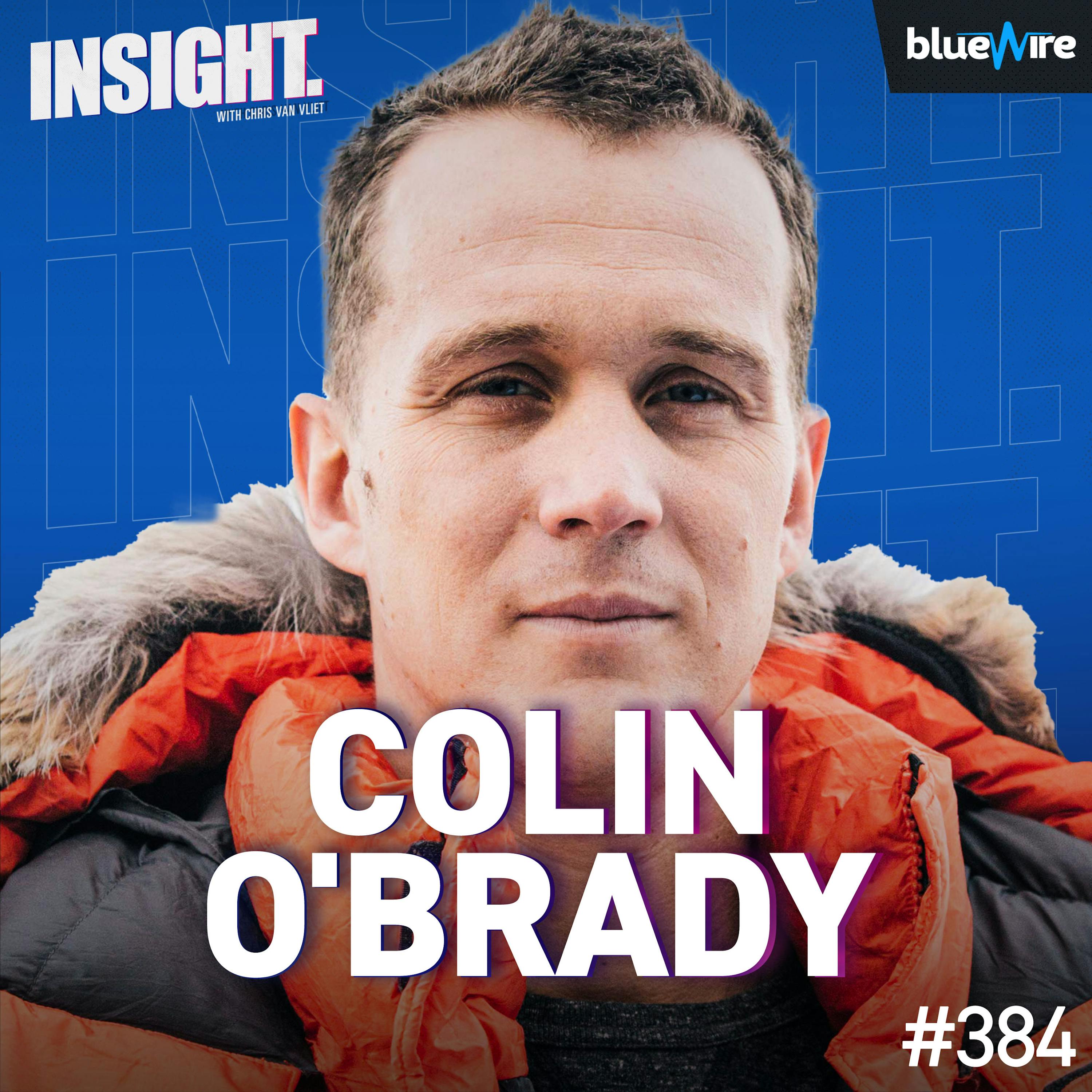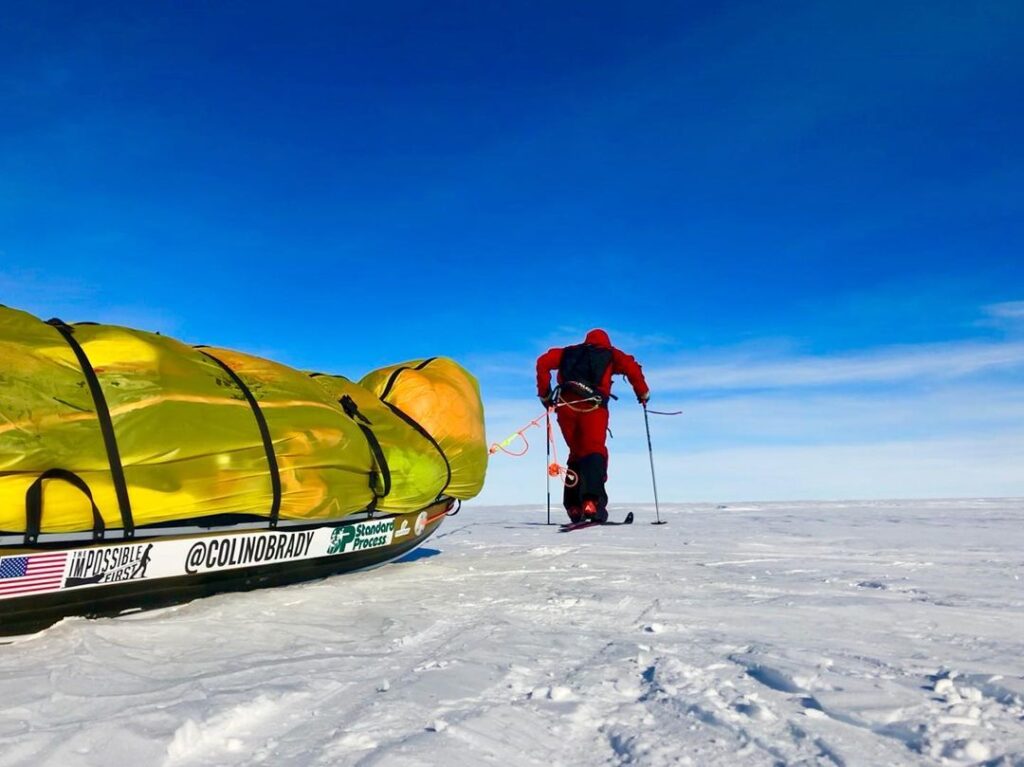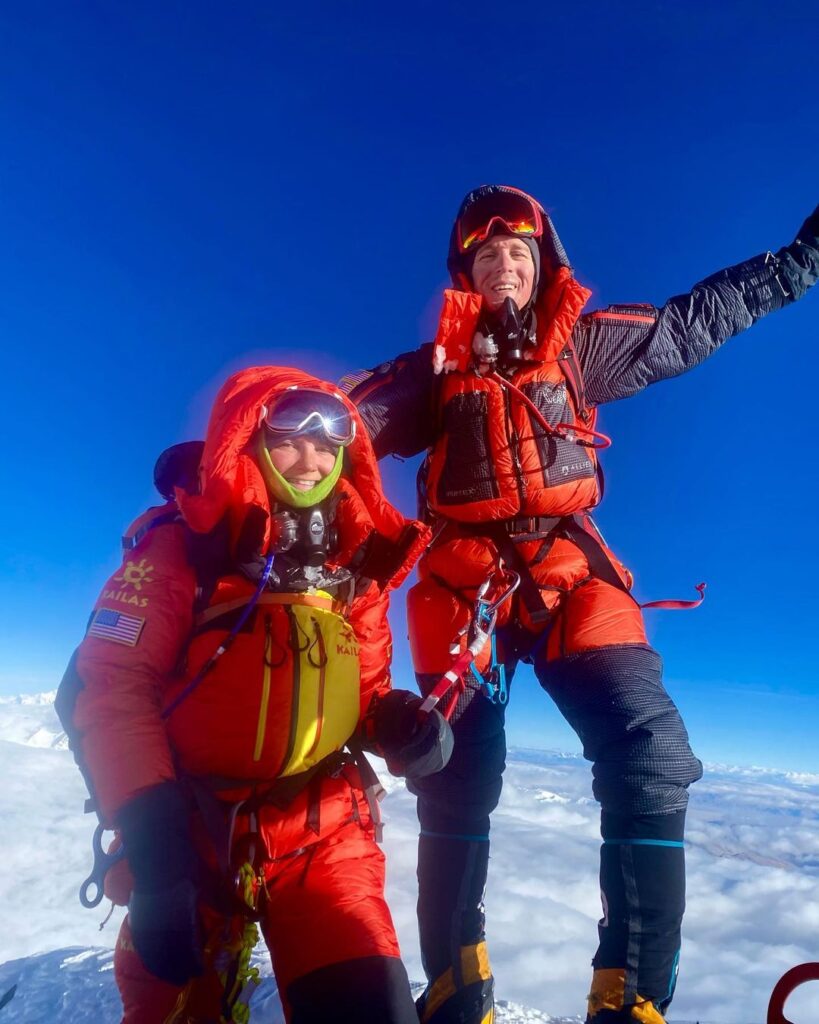Make The Impossible Possible! Colin O'Brady On Being The First Ever To Cross Antarctica Unassisted And Climbing Mount Everest TWICE!

Make The Impossible Possible! Colin O'Brady On Being The First Ever To Cross Antarctica Unassisted And Climbing Mount Everest TWICE!
Colin O'Brady (@colinobrady) is a professional endurance athlete, adventurer, motivational speaker and bestseller author of the books "The Impossible First" and "The 12 Hour Walk". Some of his most impressive conquests include a world-first solo crossing of Antarctica, a world-first ocean row across Drake Passage (from South America to Antarctica), and summiting Mt. Everest twice. He joins Chris Van Vliet to talk about the transformative power of talking a 12 Hour Walk, breaking your limiting beliefs, what climbing Mount Everest is really like, what motivates him and much more!
Learn more about Colin at http://colinobrady.com
On what Colin O’Brady’s goal is now:
“It’s funny. I humbly sit here with 10 world records and have explored many places. My new book is called the 12 hour walk, I answer that at the end of it. The book is a prescription for people to get out there and to explore, and at the end I answer the question what is my new Everest? My answer right now is to inspire 10 million people to take this 12 hour walk. This book is a challenge for you to take one day, put the phone on airplane mode and to walk for 12 hours in silence. It might sound ridiculous, but I have seen it change people’s lives and unlock their true potential. It sounds hard if you are not in great shape, but take as many breaks as you need to. My 77 year old mother in law completed her 12 hour walk, she walked around the block and sat on her porch while maintaining the silence, then she did another walk around the block. The 12 hour walk is more of an exercise of the mind and the grit, and it can unlock the limitless possibilities. My goal now is for people to unlock their potential to really reach the summit of their dreams.”
On Colin O’Brady’s experience of the 12 hour walk in Antartica:
“It starts there, but it gets to a point that is way more accessible than going to Antarctica. I set myself this massive goal a few years ago to become the first person to cross Antarctica alone and unsupported. Whatever you get dropped off with, that’s what you get. For me, that meant a 375lb sled pulling behind me full of food and fuel. I couldn’t pull my sled a mile at first, how could I do it for 1,000? Also I was not propelled, so no kites and no dogs. People have tried this in the past, one guy tried it for 71 days and died 100 miles from the goal line. I attempted it and I realized that I would run out of food and fuel if I took one day off. If I walked any less than 12 hours a day I would also run out of food and fuel. It also turned out that I wasn’t just racing history, I was also racing this other guy who was a badass military dude.”
On if they both knew it was the same mission at the same time:
“Strangely no up until right before. So what happened, and it’s not uncommon in the world of adventure, especially with a world first. You don’t broadcast what you are doing a year before, because other people will try it and try it earlier. There are a lot of logistics in going to these remote places in the world, and it turns out that there is only really one guy and one company who has a bush plane that can land you on the edge of the continent. Obviously we both called the same guy, he didn’t tell each of us about the other one. And then there is only one season where you can actually do this crossing, which is the Atlantic summer, our winter in the northern hemisphere. It’s only -25 with a wind chill that gives it -70. It is still freezing cold. But there is one guy, one plane and a week before we find out about the other guy. And then we find out that the guy has double booked the plane. He is like ‘Yeah you will sit next to each other on the plane, I will drop you off at the start line, and there you go.’ And this guy is a total badass, he is a special forces military, highly respected. He looks at me and goes ‘You know. It should be a Brit that cracks this first.’ I get out of the plane and it doesn’t even take off, it drives for like a minute, drops him off and we wave at each other. That then starts a 1,000 mile, 2 month head to head battle.”

On possibly giving up:
“A couple of times. I called my wife 2 hours in when I couldn’t pull my shed. I said that we called it the impossible thing and that sounded about right. I had a lot of doubts and a lot of fear. I was burning 10,000 calories a day and lost a lot of weight, but as my body got weaker my mind got stronger. Near the end I did this one continuous 33 hour, 77 mile push and I got there first and set the record. But what I found in this silence in Antarctica was this deep connection, deep bliss and deep purpose. I had all of this high vibe resonance of life, and I thought that I could take it with me forever. Then a lot of positive thing happened, I wrote a bestseller and did another expedition. And then COVID hits. There were a lot of people worse off than me, but it was a scary time.”
On the impact of the 12 hour walk:
“When people take this walk, the shift in one day is huge. The things that people sort out in their brain by creating that silence and taking that space, it is hugely impactful and I just want to spread the word. The power of the 12 hour walk proves the inner strength. I don’t consider myself a Tom Brady, but I have had some success. What the book breaks down is I bring you this rich storytelling of the edge of K2 in winter in Pakistan where I unfortunately lost some friends in a climbing accident. Or this row boat in the middle of Drake Passage or Antarctica solo, various other things. But it also shows you that I was afraid, being afraid of failing. The book comes from a place of vulnerability, but we can rewrite that. You can make this change today by taking those 12 hours.”
On the 12 hour walk being a mental challenge:
“That is what I say at the end of the book. People think that they have to train for this like a marathon. But if you are in ultra marathon shape, you may clock up more miles than the next person, but this is a mental exercise. I am fond of saying that the most important muscle that we have is the 6 inches between our ears. I use the word muscle for the mind intentionally, because even if we are not into fitness, we hear ‘Oh you want that summer body? Go and hit the gym.’ We understand that concept, but it is the same for the mind, we just don’t understand that. If you want to do the same for the mind, you have to do the bench press for the mind, and that is what this is. It is scary and hard, but it is supposed to be a step outside of the comfort zone.”
On what it is actually like to climb Mount Everest:
“So a friend of mine took a photo and it went viral on the internet. It was a picture of basically a bunch of people towards the summit lined up. What happened on that day was a real anomaly and weird edge case scenario. Basically Everest can only be climbed in weeks 3 and 4 of May, because 50 weeks of the year it is being battered by rain and 100mph winds. People sit there for a month before and they acclimatise and wait for this weather window, which lasts about a week or 10 days. The typical Everest season will now have 500 or 600 climbers on the mountain throughout those months and people will summit within 10 to 12 days, so maybe there is 30 to 40 people on any given day. But on this given day in 2019, the good weather never came, it was a perfect storm. There was one good day of weather, so everyone went at the same time and it caused a traffic jam at the summit. First of all, it has become more commercialised. Are there people on that mountain that shouldn’t be there? Yes unfortunately there is some of that. But the other 364 days of that year, there was literally nobody on that summit. It is unfortunate that the narrative has been passed down. But it still is a very worthy challenge.”

On his morning routine:
“My morning routine has really evolved over the past few years. I am not a coffee guy so I don’t do any caffeine. I try to move my body first thing, some sort of workout or just walking my dog. I am guilty of not doing this, but I try to not look at my phone. I also have a smoothie and some greens to get some hydration. Meditation is also a big part of my day, a buddy of mine’s wife came to one of my races, she watched the triathlon and she says to me ‘That was cool, you swim, bike and run. But what do you do to train your mind?’ I was embarrassed. I asked her what she would suggest, and she has done these 10 day silent meditation retreats. You are basically in solitude and meditate for 12 hours a day. So I signed up and I went, but the hardest thing was for me to sit still.”
On how else people can get out of their limiting beliefs:
"The reason I love that terminology is the word belief. these are not limiting facts, they are beliefs, and beliefs can be re-written. I am a firm believe that we are the stories that we tell ourselves. I had those demons in Antarctica, but you got to battle against them. The 12 hour work is one way, but it all comes back to committing to something outside of that range. Something that will push you outside if the comfort one, that is where you have to dare to take that risk and be uncomfortable. It is a personal thing, what is in my comfort zone might not be in yours and vice versa."
On what Colin O'Brady is grateful for:
"My wife, health and community."
The 12 Hour Walk is out now.
Embedded images: Instagram







